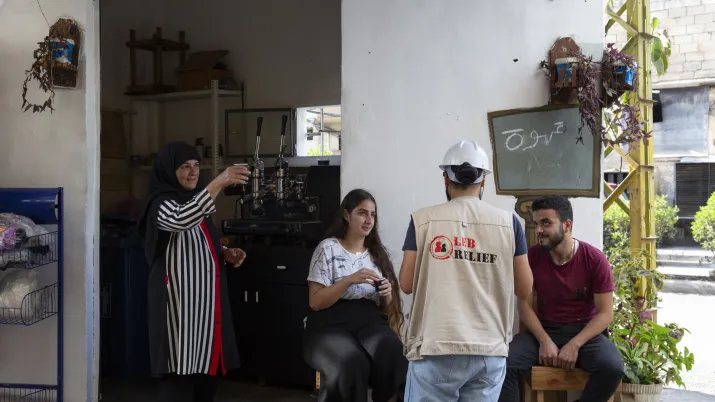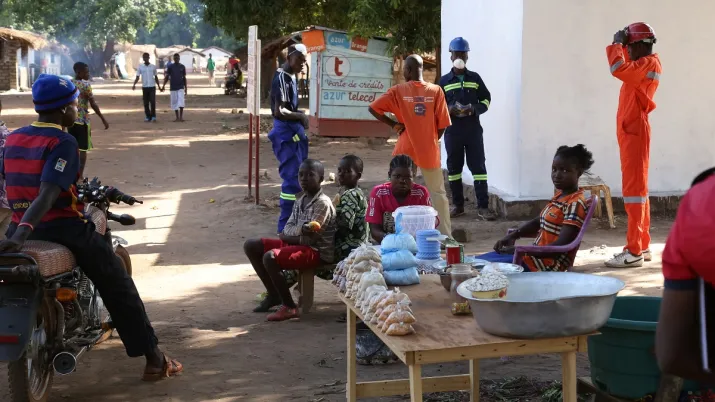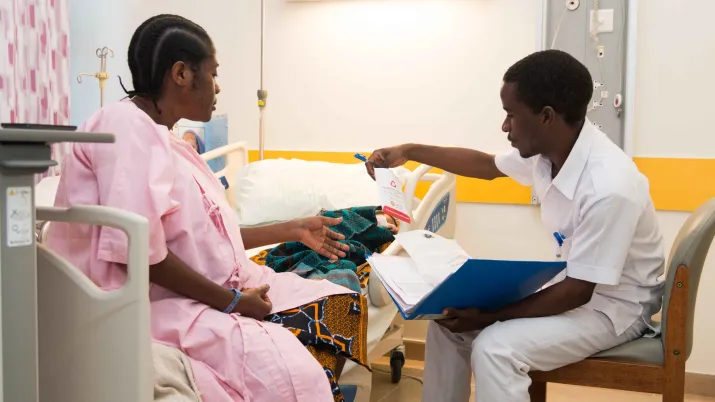Share the page
ENSAAC
Project
Published on
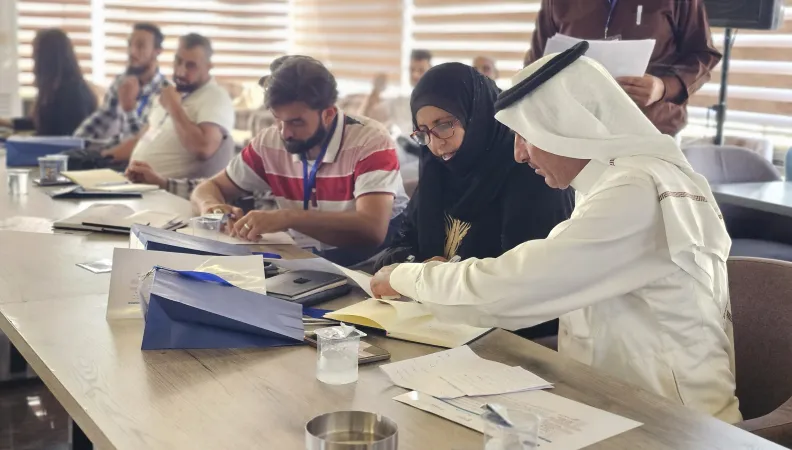
-
Project start date
-
Status
Ongoing
-
Project end date
-
-
Financing amount (Euro)
-
1.2m
-
Country and region
-
Syria, Middle East

The ENSAAC project aims to strengthen the capacity of non-State civil society actors to engage in public policy dialogues in northern Syria.
Syria: Civil society faced with the challenges of fragmented governance and a fragile political transition
The Syrian civil war broke out in 2011 in the aftermath of the Arab Spring. The country was very rapidly divided and controlled by several rival factions. Access to essential services such as water, electricity, healthcare and education was severely disrupted, especially in the northern and eastern regions of the country, around the cities of Raqqa, Deir-ez-Zor, Hassaké and Aleppo. In February 2023, two powerful earthquakes struck Syria and Türkiye, which further exacerbated the insecurity of people in the north of the country.
The political landscape following the fall of the Assad regime remains uncertain. A transitional government held power for three and a half months before being replaced by a permanent administration at the end of March 2025. However, the government has been criticised for excluding certain political factions and mainly relying on prominent figures from the Hay’at Tahrir al-Sham (HTS) group who have taken over all the key ministries, while only one woman has been included in the cabinet. However, the interim President, Ahmed el-Sharaa, has reiterated his determination to ensure a just and inclusive political transition, signalling his support for minorities. On 25 February 2024, a National Dialogue Conference was organised by the interim government, with invitations sent to several civil society groups, during which the participants called for a greater inclusion of civil society and trade unions in the political process.
The importance of Syrian civil society organisations
Following the Arab Spring of 2011, a number of civil society organisations (CSOs) sprung up across the country, addressing needs no longer met by the central State.
The action of these organisations was for a long time restricted by a repressive political environment, legal restrictions, and a lack of financing. They rely heavily on international aid, which is constantly declining, and the engagement of their volunteer workers. Many of them also lack technical skills, especially in terms of public policy analysis, advocacy and strategic planning, which restricts their growth, and organisational skills, making it difficult for them to attract financing and organise their internal resources to ensure their sustainability. The fact that civil society does not take part in decision-making processes considerably reduces the possibility of developing inclusive public policies geared to the needs of local communities. Several non-State actors are today seeking to move away from the provision of services to participate more actively in the preparation of public policies and local governance, in connection with the issues and challenges facing the current political transition.
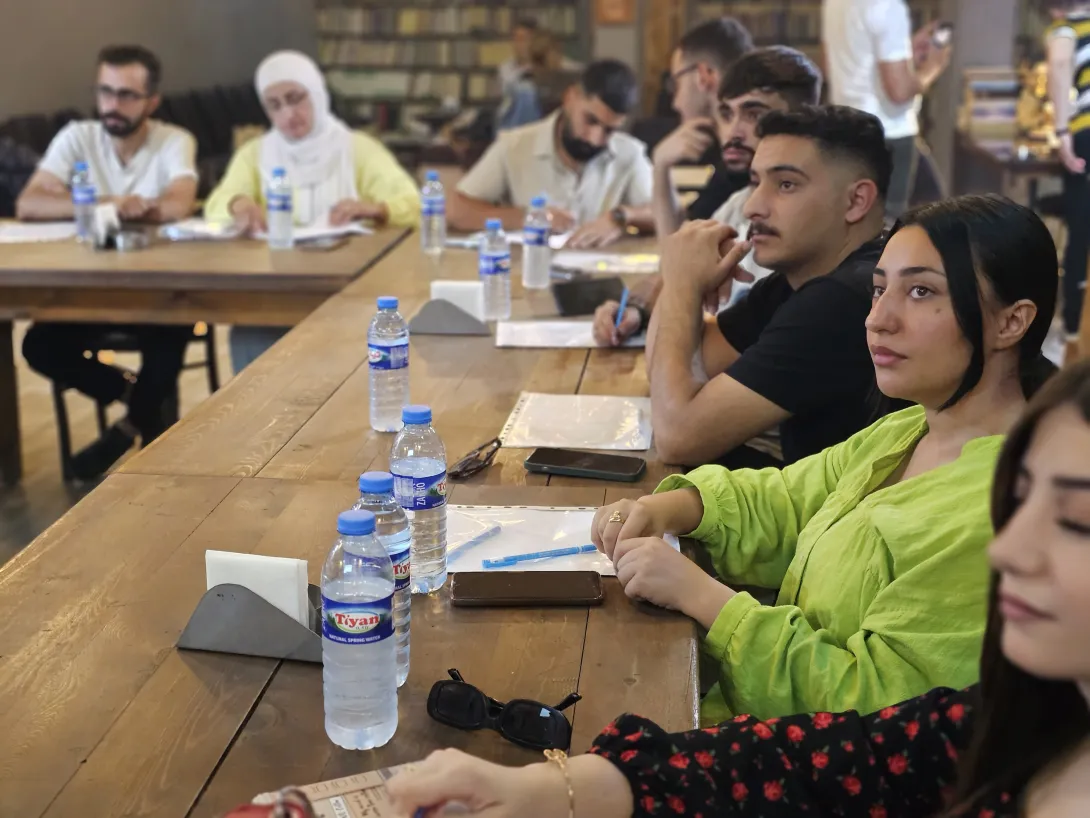
Towards an empowerment of civil society with the ENSAAC project
With the implementation of the ENSAAC project, France and the European Union are acknowledging the crucial role played by Syrian civil society actors and are seeking to promote the creation of a more sustainable and participatory civic space in Syria.
The objective of this project is to support civil society actors in the north-east and north-west of Syria to help them become agents of change and, in the longer term, enable them to take part in local governance and the public policy dialogue. The project aims to empower and support the local activities of professional associations, trade unions, groups with a common interest, and networks of associations and activists.
The project will make it possible to:
- Identify actors able to contribute to the public policy dialogue
- Build their capacities (governance, organisational and technical capabilities)
- Support and finance initiatives for dialogue and platforms coordinated by local civil society actors
Resources library
Discover the documents produced within the framework of the project, classified by topic:
The Hooz policy brief “Freedom of Expression (FoE) after the fall of the regime: between constitutional entitlements and societal challenges” traces the Freedom of Expression landscape and proposes practical steps to safeguard speech and enable safer civic-dialogue spaces.
NÛDEM – Media ethics & safe information space proposes a local media-ethics charter, an independent digital platform, mentoring, and recurring multi-stakeholder forums.
Şawişka policy framework – “Gender-responsive anti-narcotics framework” provides recommendation for women-centred prevention, treatment, rehabilitation, and conflict-sensitive protection measures.
Ambassadors (Association of Persons with Disabilities) policy framework – “Inclusive governance agenda for People with Disabilities” provides recommendations for inclusive legislation/oversight, reserved representation, accessible elections, and targeted empowerment.
Ishraqah – Women’s political participation (Idlib) – commitments note documents concrete steps agreed with local counterparts: grievance channels, transparent entry pathways, legal aid, and follow-up mechanisms.
These document set a victim-centred pathway (through awareness, analysis, training and empowerment processes) for an inclusive transitional justice process.
Sustainable Development Goals
SDG16 - Peace, justice and strong institutions
Promote just, peaceful and inclusive societies

On the same topic
SHABAKE – Building the capacities of Lebanese civil society organisations
Closed
2019 - 2025
Funders : Agence Française de Développement, Ministry of Foreign Affairs of Denmark, Ministry for Europe and Foreign Affairs of France
Pilot Project for the Redeployment of Decentralized Services, Enhancement of Social Cohesion and Early Recover...
Closed
2016 - 2019
Funders : European Union
Rehabilitation of the Abala and Adwa hospitals in Ethiopia
Ongoing
2023 - 2025
Funders : Ministry for Europe and Foreign Affairs of France



